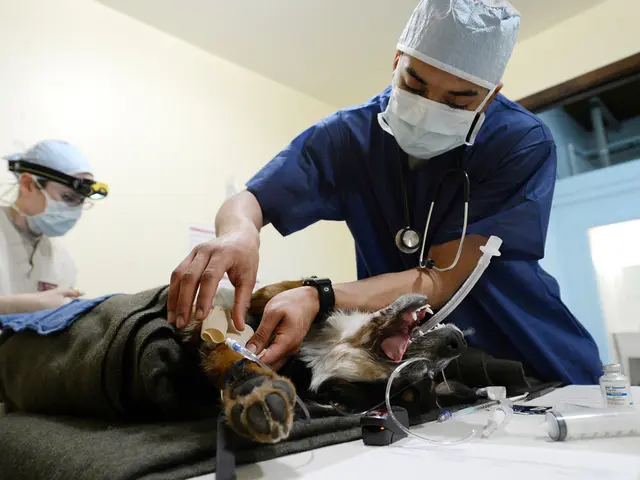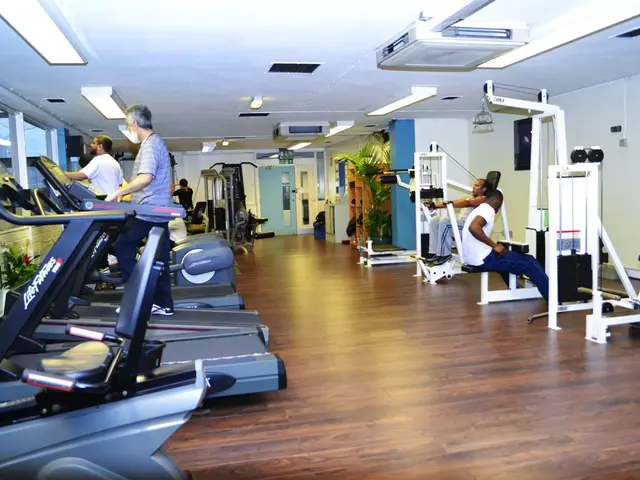AI-powered facial analysis aids in estimating cancer survival duration.
Revamped Analysis: AI Tools Predict Cancer Survival, Enhance Treatment Plans
Öhlávej! Let's dive into the incredible world of artificial intelligence (AI) and its application in cancer treatment. Researchers at Mass General Brigham have developed an AI tool called FaceAge that evaluates facial features to estimate a patient's biological age. This innovation could revolutionize the way we approach oncology care!
The FaceAge tool uses deep learning algorithms to analyze photos—think a simple selfie—and calculate a person's biological age, which often differs from their chronological age. In a study published in Lancet Digital Health, scientists found that cancer patients with higher FaceAge scores, i.e., appearing biologically older, showed worse survival outcomes across various cancer types. Quite fascinating, ain't it?
To see if FaceAge could be a viable prognostic tool, the researchers compared it to human assessments. When the AI tool was used alongside human clinicians' predictions, it outperformed them in identifying which patients undergoing palliative radiotherapy for advanced cancers would be alive after six months. Whoa, right?
Hugo Aerts, co-senior author of the study, excitedly stated that FaceAge "contains important information that could help inform clinical decision-making and care plans for patients and clinicians." But remember, his intention is to facilitate, not replace, clinical judgement.
While FaceAge shows great promise, it's important to address potential limitations. Bias within the data and reading errors in the model may affect results. To combat this, scientists are ongoing studies to expand the range of patients tested and assess FaceAge's ability to predict diseases, health status, and lifespan.
The field of biomarkers for aging is red-hot right now. Researchers have unveiled a simple blood test to detect internal organ aging and flag disease risks, while FaceAge focuses on perceived aging, i.e., how older a person appears to healthcare professionals. Perceived ageing has shown potential as a mortality and several age-related disease predictor. But gathering data through human observation can be time-consuming and costly.
Jaume Bacardit, an AI specialist at Newcastle University, who has worked with perceived ageing technology, praises the thorough evaluation of FaceAge but notes that there's still a need for clarity on which facial features guide its predictions to identify potential confounders.
So that's FaceAge! Future research will help us understand how it could be used to improve personalized treatment strategies and grow beyond cancer into other chronic diseases. Stay tuned for more advancements in the astonishing world of AI! 🤖💻🚀
- The study published in Lancet Digital Health indicates that cancer patients with higher FaceAge scores, signifying a biologically older appearance, tend to exhibit worse survival outcomes across multiple cancer types.
- In comparison to human assessments, FaceAge demonstrated superior ability when used together with human clinicians to predict which patients undergoing palliative radiotherapy for advanced cancers would survive beyond six months.
- To make FaceAge a more reliable prognostic tool, scientists are conducting continuous studies to enlarge the range of patients tested and assess its potential for predicting diseases, health status, and lifespan.
- Other researchers have developed a simple blood test for detecting internal organ aging and identifying disease risks, while FaceAge focuses on perceived aging, or a person's apparent age to healthcare professionals.
- Perceived aging has proven promising as a mortality and several age-related disease predictor; however, data collection through human observation can be labor-intensive and expensive.
- Jaume Bacardit, an AI specialist at Newcastle University, acknowledges the comprehensive evaluation of FaceAge but stresses the importance of further clarifying which facial features guide its predictions to identify potential confounders.








